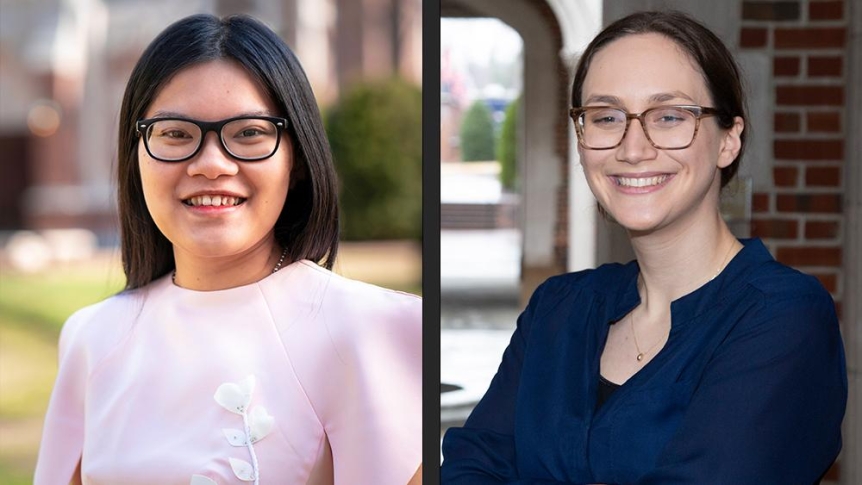University of Richmond Students Address Human-Wildlife Interaction and Human Trafficking
Funded Projects, Partner Institutions, Asia, Africa, Environment, Health & Well-being, Human Rights & Justice

This article originally appeared in the University of Richmond Newsroom.
UNIVERSITY OF RICHMOND — Two University of Richmond seniors — Ngan Bui and Elspeth Collard — have each received $10,000 Projects for Peace grants. Projects for Peace is an initiative supporting college students on grassroots projects designed to build peace. It’s only the second time since the program’s inception in 2007 that two UR projects have been funded in a single year.
Ngan Bui, a business administration major from North Chesterfield, Virginia, will be working in Cambodia to raise awareness and educate the local community about the dangers of human trafficking and sexual exploitation.
Bui says her research shows the pandemic has made it challenging for Cambodian authorities to further anti-trafficking efforts because the COVID-19 lockdown hindered efforts by government officials and non-profit organizations to disseminate human trafficking information to the general population. Bui will partner with various organizations to implement a series of workshops to educate prospective teachers and students about human trafficking and equip them with the skills to teach others about this topic.
“By connecting local nonprofits, this project creates a network of strong partnerships that work toward the common goal of eradicating human trafficking,” said Bui. “The project will allow community members to protect themselves and others by providing them with the knowledge and resources to recognize the signs of human trafficking and strategies employed by traffickers.”
Elspeth Collard, from Alexandria, Virginia, is an interdisciplinary studies major with a focus on environmental health. Collard will travel to Kenya to work with a local village on sustainable solutions to human-wildlife interactions.
The goal of the project is to reduce human and livestock injuries and death by mitigating human-wildlife conflict in Kimana, a rural Kenyan town that borders the unfenced Amboseli National Park. The park’s proximity to the communities of the local Indigenous Maasai people creates conflict with dispersing wildlife. Maasai bomas, compounds that contain both residential shelters and livestock pens, are frequently attacked by predators, including hyenas and lions, usually at night.
“Boma fencing is not widespread, and it’s expensive,” said Collard. “The team I’m working with plans to address this gap by installing low-cost, flashing, solar-powered lights as a predator-deterrent around 20 bomas located near the park.”
Twenty-five University of Richmond students have received support from Projects for Peace. Projects in the past few years have included
- a program to combat youth unemployment in Nigeria,
- a podcast for Afghan refugees and immigrants,
- energy efficiency kits for minoritized peoples,
- support for women’s reproductive health education,
- economic empowerment of women in Bolivia, and
- a library for school children in Kenya.
Bui and Collard will complete their projects this summer.

